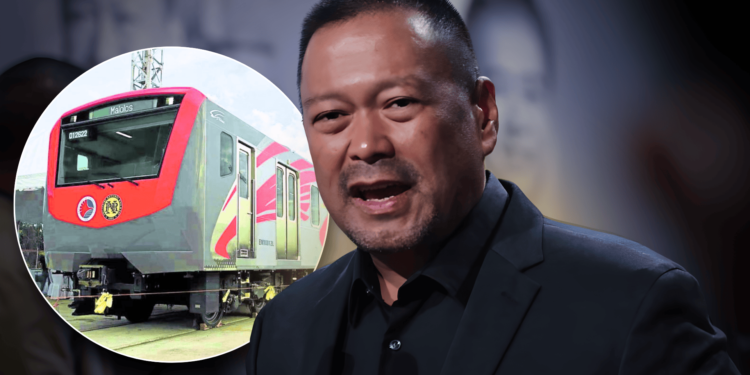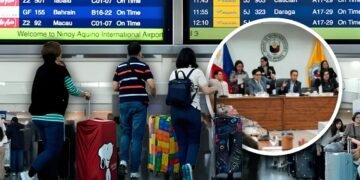Senator JV Ejercito is slamming what he calls the “hijacking” of infrastructure budgets, saying political maneuvering is derailing critical transport projects at a time when the Philippines is already lagging far behind its ASEAN neighbors. He wants foreign-assisted and flagship projects kept in programmed funds with guaranteed financing to prevent further delays.
The Philippines remains one of the weakest performers in infrastructure among Southeast Asian countries. In the 2024 Quality Infrastructure Index, the country scored 37.63 out of 100 and ranked 61st out of 67 economies. Manila’s Urban Mobility Readiness Index score is 29 percent, reflecting poor public transit coverage and integration. The country has only 330 to 500 kilometers of operational rail, far behind Indonesia’s 6,927 kilometers, Thailand’s 5,109, and Vietnam’s 2,600 to 3,100. Road density is also below regional standards, with the Asian Transport Observatory reporting only 2.7 meters of road per person compared to the Asian average of 3.2 meters.
Ejercito said the country cannot close this gap if major projects continue to be delayed or stripped of assured funding. He has repeatedly emphasized that rail is the core of the Department of Transportation’s budget and should be treated as a national priority. He warned that funding delays have already affected timelines for key undertakings. Phase 1 of the Metro Manila Subway, a central project of the administration, was supposed to be completed in 2028. The Department of Transportation now projects completion in 2032 because of budget constraints and right-of-way issues.
These delays, Ejercito stressed, are not just the result of construction challenges but of funding decisions made in Congress. The placement of priority programs and foreign-assisted projects under unprogrammed funds — a move linked to Representative Zaldy Co in discussions surrounding the realignments — has had catastrophic consequences, delaying crucial undertakings that were supposed to be the backbone of the country’s transport network. Ejercito has been vocal about the damage this caused to the timetables of major infrastructure projects, warning that exposing priority programs to uncertain or discretionary funding undermines their timely implementation.
Navotas Representative Toby Tiangco, in a Senate Blue Ribbon Committee hearing, discussed in detail how billions intended for flagship projects were realigned to other allocations, including flood control. These projects include some of the administration’s most high-profile undertakings such as the Metro Manila Subway, the North–South Commuter Railway, and the Mindanao Railway Project. Ejercito said these realignments undermine long-term transport priorities and make it harder to deliver infrastructure on time.
Those same realignments are now at the center of a broader political and fiscal dispute. Tiangco has filed an ethics complaint against Co, accusing him of diverting funds from flagship projects to flood control works. Co has denied the allegations, but the hearings have drawn attention to how budget decisions are made and how flagship projects can lose funding without public scrutiny.
Ejercito pointed to the Mindanao Railway Project as a clear example of how these moves can stall national priorities. Once positioned as a key investment to boost regional growth, the project currently has no allocation in the proposed 2026 budget. For Ejercito, this reflects a pattern in which projects critical to long-term mobility and economic competitiveness are set aside in favor of short-term or politically driven spending.
House realignments also slashed the Department of Transportation’s budget by around 42 percent from its original National Expenditure Program level. Allocations for major rail projects, including the North-South Commuter Railway and the Metro Manila Subway, were shifted to unprogrammed funds, which depend on excess revenue or loan proceeds before they can be released. Ejercito warned that this puts essential infrastructure at the mercy of fiscal uncertainty.
He has defended the use of targeted amendments, saying not all insertions should be dismissed as questionable. According to him, they can strengthen the budgets of agencies that deliver essential services, unlike allocations shaped purely by political interest.
Analysts and industry groups have long flagged poor transport networks as a drag on both economic competitiveness and tourism. A 2025 study in Cateel, Davao Oriental found that tourist satisfaction with transportation strongly correlates with the likelihood of returning, underscoring how infrastructure gaps directly affect economic activity.
Ejercito is backing proposals to limit or scrap unprogrammed appropriations in the 2026 budget. For him, ensuring that flagship projects have guaranteed funding is not just about keeping construction on schedule. It is also about making sure national priorities are not dictated by politics.












